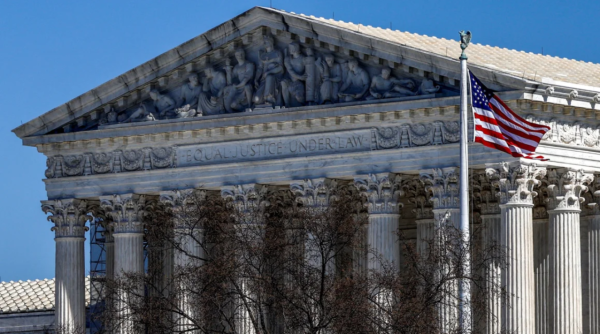Black Hair in a White Institution
March 2, 2016
“I’m not an animal. I don’t really appreciate to be pet like one,” said Taylor Yarborough, junior Fashion Merchandising major and president of Women of All Textures.
Being black, Yarborough has faced curious strangers touching her hair—usually without asking.
“I understand that people don’t really know that what they are doing is offensive,” said Yarborough. “So, it’s something that I try not to get mad about.”
Created in 2014, Women of All Textures is a “pro healthy hair” group. Yarborough said the group is not just a pro natural hair group.
“We try to cater to all women,” said Yarborough. “Whether it’s a woman who has a sew-in, or whether they have natural hair or full locks.”
Yarborough wants members to take pride in their hair, however they wish to wear it, while keeping it healthy.
Yarborough, who wears her hair in many different styles, has not only experienced offensive actions because of her hair, but she recalls seeing a magazine that featured ways for white women to get the afro hairstyles of black women.
“I think that it’s very stereotypical, said Yarborough. “I’m being told it looks unruly or unkempt when I have my natural hair, but on the flipside you’re teaching people how to get hair like mine.”
Beauty Vlogger and junior communications major Diatra Lanham can attest to the double standard when it comes to black hair styles.
“People of other races don’t necessarily get the type of criticism that black people get by changing their hair so often,” said Lanham. “That criticism not even necessarily coming from outside races, but coming from within our own culture.”
The controversy surrounding Beyonce’s hair style for her Super Bowl performance also opens the door for criticism within the black community.
The singer opted for a long blonde hairstyle while her backup dances donned afro wigs. Beyonce’s hair choice created a discussion on the “European” style of her hair.
“I’m torn on the topic, but feel like that blonde hair has been her look for years,” said Lanham. “It would seem very fake of her to just change it for one day.”
For Yarborough, the importance of hair goes deeper than just looks.
“I really think it goes back to knowing your history and knowing where you come from.” said Yarborough. “Wearing sew-ins and weaves, it doesn’t have a big affect on me because I know my history and I can appreciate the importance of my hair.”
“Women should always have the choice of how to wear their hair,” said Yarborough. “I think it becomes a problem when you look back in history, black women were wearing their hair straight to fit in.”
Lanham has her own youtube channel full of videos about hair care techniques and makeup tips for women with darker skin tones, which Lanham feels is an audience not widely represented in the beauty world.
“I’ll do lipstick swatches for my viewers,” said Lanham. “Because there have been so many times where I will pick out a shade of lipstick and it looks completely different on me because of my skin color.”
Many of the hairstyles worn by black women can also be used to protect their natural hair, should they decide to “go natural.” The technique of protective styling offers women’s natural hair a chance to grow out, without being damaged.
“Protective styling is a great way to protect your natural hair from harsh weather conditions,” said Lanham. “There are so many ways to wear a protective style, even wigs are a form of protective styling.”
In a predominantly white institution, black women have difficulty finding a place to get her hair styled, that actually caters to her hair texture.
“As far as finding salons out here in Kent, that’s not going to happen,” said Lanham. “You have to go to Akron for Cleveland for that.”
There is one salon in the Kent area that specializes in black hair. Located on South Water St, Ichi’s salon caters to black women. Testimonials on the site write praises about “finally having a salon in Kent.”
However, most are unaware, or do not take the time to find hair salons because scarcity is expected.
Both Lanham and Yarborough know of women who can do hair on campus and offer their services to other students.
“I feel like I didn’t hear about hair as much until I came to Kent,” said Lanham. “I started seeing all these girls with natural hair, embracing their natural style and I thought it was so cute.”
Laham decided to go natural her freshman year at Kent after learning about the chemicals in hair relaxers.
“I was in my black images class, and we read about autopsy results from black women who used relaxers,” said Lanham, “and you could tell the women apart from which one used relaxers and which one didn’t.”
Although she grew up in a predominately white community, Lanham wasn’t often faced with criticism from other races because of her different hair styles.
“I was lucky growing up. I’m from Kent, so I went to a predominately white school,” said Lanham. “Most of the kids thought my hair styles were cool, I would just tell them my mom did it, and tell them to ask their mom to do it for them too.”
She said she never felt targeted in a negative way, but always felt different. Some of the pressure on hair styling did come from within the black community for Lanham.
“When you wear your hair straight, people think that you’re trying to embrace this european look,” said Lanham. “That idea has been put into our heads since we were young. My parents didn’t instill that in me, but the community instilled that in me.”






















